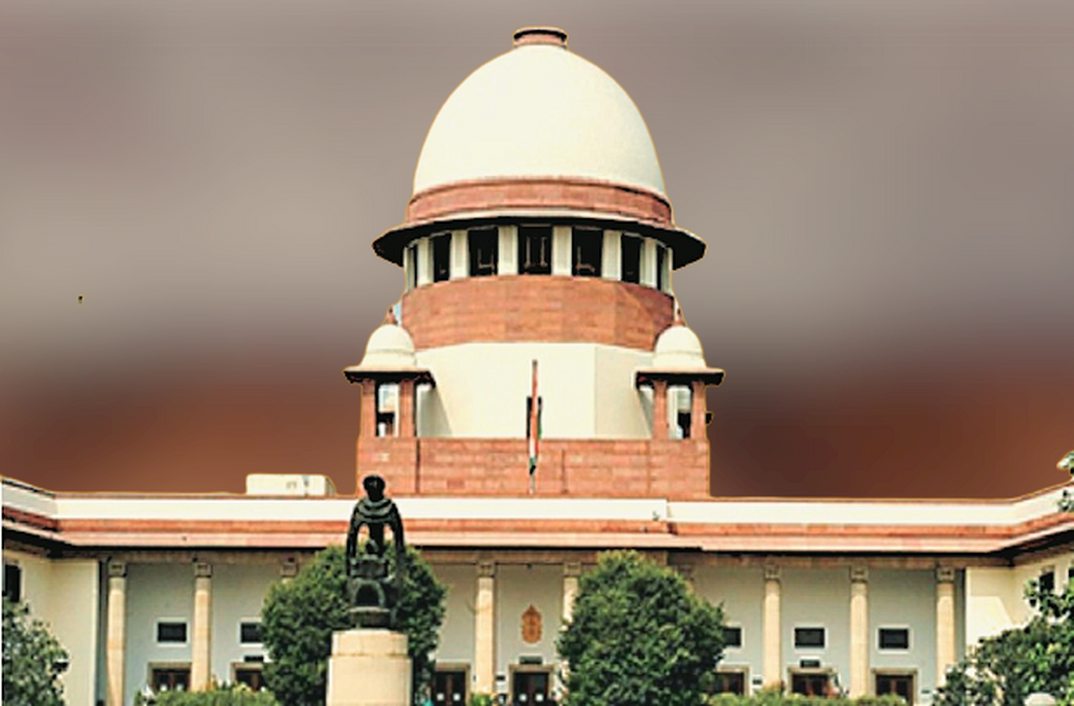Insolvency process against corporate debtor not time barred by 3 years from declaration as NPA: Supreme Court

Read Judgement: Dena Bank (now Bank of Baroda) v. C. Shivakumar Reddy and Anr
Pankaj Bajpai
New Delhi, August 6, 2021: Setting aside a judgment of the NCLAT, the Supreme Court has ruled that the resolution process against a corporate debtor before the adjudicating authority will not get time barred on the ground that it has been filed beyond a period of three years from the date of declaration of the loan account as a non-performing asset (NPA).
A Division Bench of Justice Indira Banerjee & Justice V Ramasubramaniam observed that the application filed by Dena Bank under section 7 of the Insolvency and Bankruptcy Code for initiation of insolvency process was not time barred.
“Needless however, to mention that depending on the facts and circumstances of the case, when there is inordinate delay, the Adjudicating Authority might, at its discretion, decline the request of an applicant to file additional pleadings and/or documents, and proceed to pass a final order,” the Bench said.
“In our considered view, the decision of the Adjudicating Authority to entertain and/or to allow the request of the Appellant Bank for the filing of additional documents with supporting pleadings, and to consider such documents and pleadings did not call for interference in appeal,” the Bench added.
Case Details
The judgment was passed in reference to an appeal u/s 62 of the IBC filed against the National Company Law Appellate Tribunal (NCLAT) for allowing the Company Appeal filed by the respondents and setting aside an order passed by the NCLT, Bengaluru, that had admitted the petition filed by the Appellant Bank against the Respondent No.2 (Corporate Debtor) u/s 7 of the IBC.
The NCLAT in its decision held that the petition of the Appellant Bank u/s 7 of the IBC was barred by limitation.
Respondent No.1 was a Director of the Corporate Debtor. The Appellant Bank had sanctioned Term Loan and Letter of Credit Cum Buyers’ Credit in favour of the Corporate Debtor, with an upper limit of Rs 45 crores, who however defaulted in repayment of its dues to the Appellant Bank. The Loan Account of the Corporate Debtor was therefore declared NPA on 31st December, 2013.
Later, on January 9, 2019, the Appellant Bank filed an application before the Adjudicating Authority NCLT. Opposing the same¸ the Corporate Debtor filed its preliminary objection u/s 7 of the IBC, contending that the petition was barred by limitation. The Adjudicating Authority allowed the application of the Appellant Bank and appointed an Interim Resolution Professional. The objection of the bar of limitation, raised on behalf of the Corporate Debtor was considered at length and was rejected by the NCLT.
What Supreme Court said
After considering the arguments & pleadings, the Supreme Court held that an application u/s 7 of the IBC would not be barred by limitation, on the ground that it had been filed beyond a period of three years from the date of declaration of the loan account of the Corporate Debtor as NPA, if there were an acknowledgement of the debt by the Corporate Debtor before expiry of the period of limitation of three years, in which case the period of limitation would get extended by a further period of three years.
Moreover, the Apex Court highlighted that a judgment and/or decree for money in favour of the Financial Creditor, passed by the DRT, or any other Tribunal or Court, or the issuance of a Certificate of Recovery in favour of the Financial Creditor, would give rise to a fresh cause of action for the Financial Creditor, to initiate proceedings u/s 7 of the IBC for initiation of Corporate Insolvency Resolution Process (CIRP), within three years from the date of the judgment and/or decree or within three years from the date of issuance of the Certificate of Recovery, if the dues of the Corporate Debtor to the Financial Debtor, under the judgment and/or decree and/or in terms of the Certificate of Recovery, or any part thereof remained unpaid.
“There is no bar in law to the amendment of pleadings in an application u/s 7 of the IBC, or to the filing of additional documents, apart from those initially filed along with application u/s 7 of the IBC in Form-1,” opined the Bench.
In the absence of any express provision which either prohibits or sets a time limit for filing of additional documents, it cannot be said that the Adjudicating Authority committed any illegality or error in permitting the Appellant Bank to file additional documents, added the Bench.
The Top Court also clarified that depending on the facts and circumstances of the case, when there is inordinate delay, the Adjudicating Authority might, at its discretion, decline the request of an applicant to file additional pleadings and/or documents, and proceed to pass a final order.
The SC thus allowed the appeal.
Sign up for our weekly newsletter to stay up to date on our product, events featured blog, special offer and all of the exciting things that take place here at Legitquest.




Add a Comment